The recent discussion surrounding the advancement of Artificial Intelligence (AI) is increasingly focused on its impact on employment. While AI has the potential to reshape industries and increase productivity, it also poses a significant threat to job availability.
This discussion is as old as the industrial revolution, which replaced human labor with machines. The rapid progress of technology in recent decades has generated similar concerns.
Today, however, it is evident that not only manual labor but also intellectual and highly specialized work fields are at risk. In the most dystopian scenarios, literature, text production, music, cinema, visual arts, and even medicine could be produced and executed by machines with fidelity and precision comparable to that of humans.
Therefore, the question arises whether technology will continue to be a tool in the hands of humans, or if humans will be confined, for the first time in history, to a secondary role as supporters of machines.
The answer is neither obvious nor easy. However, it is still in human hands to design the regulatory framework that will tip the balance towards the right side.
Once called scientific fiction, today we are called upon to envision science and its role before fiction itself becomes a scientific derivative.
PS: The above text was written by a human.
*The photo was originally published in Business Today









